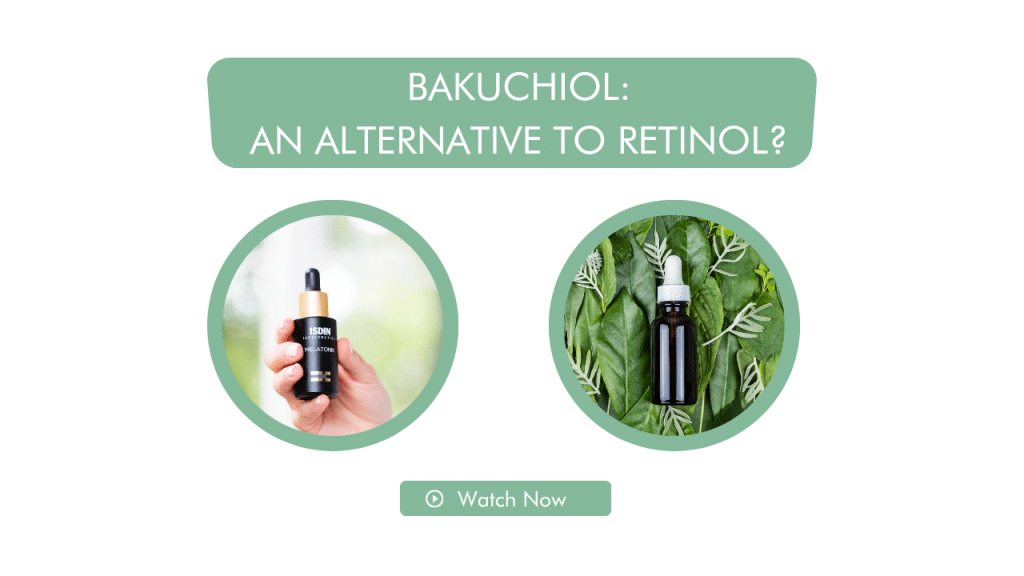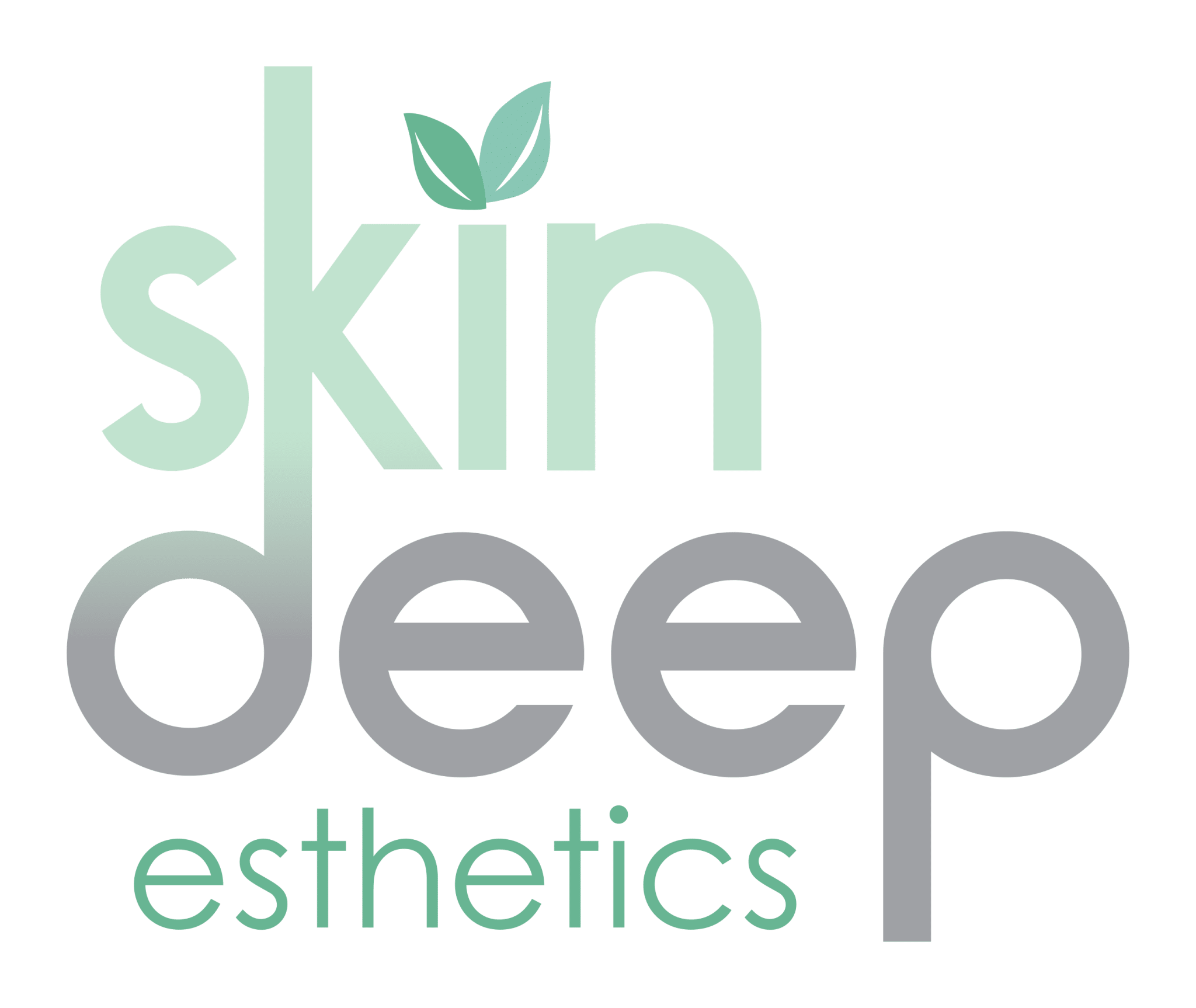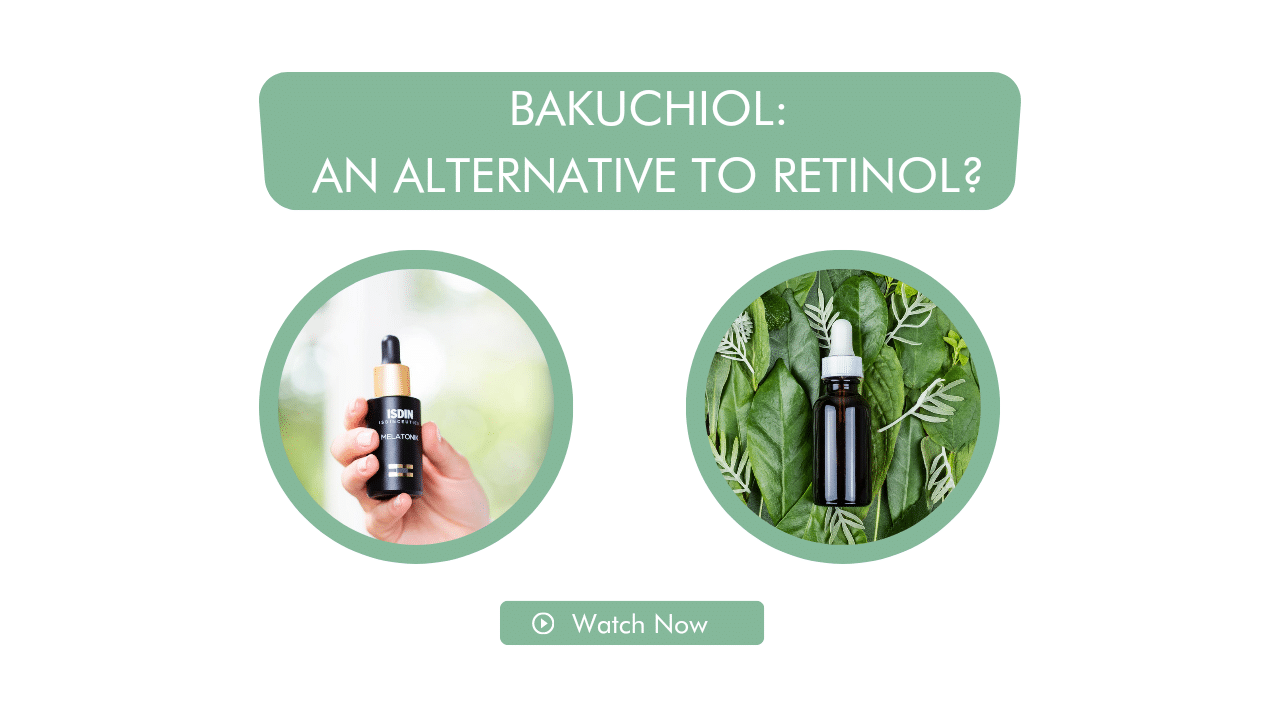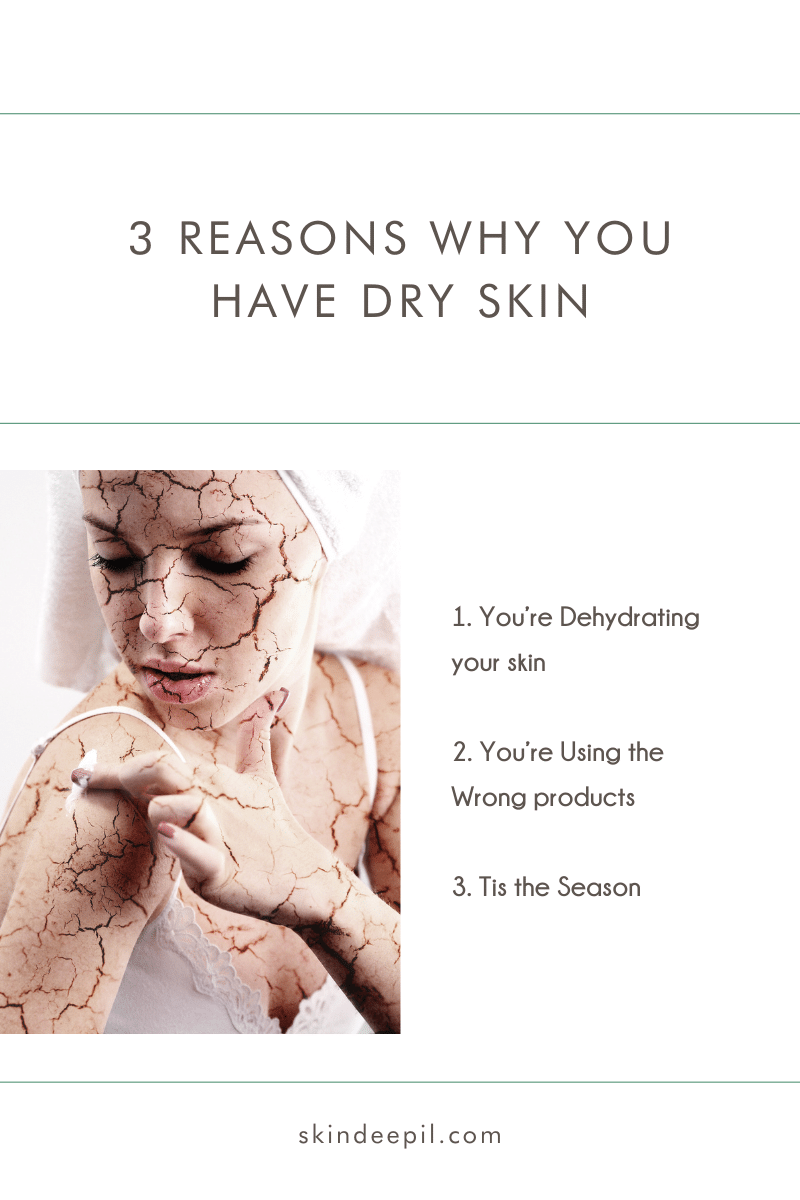Bakuchiol vs. Retinol
Today is all about this amazing ingredient and why you should be swapping bakuchiol out for retinol. Bakuchiol is a safe, natural alternative to retinol because when applied to the skin, they work the same.

What does retinol do?
Retinol is popular for anti-aging because it stimulates fibroblast cells. Fibroblast cells are responsible for collagen synthesis.
Bouncing off topic for a moment to explain further…
We start losing 1% of collagen per year between the ages of 25 to 30. Think for a moment about aging, and what your skin looks like in your 40s. You start to notice wrinkles and sagging skin. That’s because this whole time, you’ve been losing collagen.
You can never create new collagen, but you can strengthen the collagen you do have. This is where fibroblast cells come in. Enter bakuchiol to keep your fibroblast cells strong.
Collagen
Collagen is like the foundation of your house. If you’re fixing up a run-down house and the foundation’s cracked and crumbling, what do you think is going to happen? Everything’s going to crumble!
Fibroblast cells work by strengthening collagen, which acts as the foundation of your house. When you do your skincare routine the skin stays younger-looking.
Bakuchiol is a really cool ingredient! It has been used in India and Traditional Chinese Medicine for thousands of years. They used bakuchiol as medicine to heal people. Bakuchiol comes from the Psoralea corylifolia plant and is an antioxidant. Bakuchiol has anti-microbial, anti-inflammatory, and anti-bacterial properties.
Not only does bakuchiol stimulate fibroblast cells and fight aging, but also treats acne, rosacea, and skin inflammation. Bakuchiol is a powerhouse ingredient! Here’s a link to Bakuchiol on Wikipedia
The Bakuchiol vs. Retinol study
“Researchers performed a 12-week double-blind study on 44 patients. The patients either applied 0.5% bakuchiol or retinol. Pictures of the patient’s skin were taken before they started, then at the 4-, 8-, and 12-week mark. Afterward, they had a board-certified Dermatologist assess the patient’s skin.”
The Result
“Bakuchiol and retinol both significantly decreased wrinkle surface area and hyperpigmentation,” aka, dark spots, “with no statistical difference between the compounds. The retinol users reported more facial skin scaling and stinging.”
For those of you who have used retinol, you know how red and irritated this product leaves your skin. Not to mention the fact that the skin burns, itches, and peels. The study states that bakuchiol won’t result in those negative side effects, yet giving you the same results.
The Conclusion
“The study demonstrated bakuchiol is comparable to retinol, in its ability to improve photoaging,” which is sun damage, “and it’s better tolerated than retinol. Bakuchiol is promising as a more tolerable alternative to retinol.” That’s HUGE! Check out the PubMed article
Using Bakuchiol
For those of you who don’t know me, I’ve been an esthetician for 20 years and always researching ingredients & trends (aka geeking out over the skin). I’m in my mid-40s, and LOVE my peptides and have been religiously using them for several years, I was looking for something to complement the peptides.
I was considering retinol but, having a natural approach to the skin, retinol doesn’t resonate with my philosophy. I had been seeing bakuchiol pop up more in our industry. I did my research and found this product, recommended by an esthetician friend of mine, called Melatonik

When testing products on myself, I don’t tell anybody. About a month after I started using the melatonik serum, clients started asking what I’m doing differently to my skin. They stated my skin had a glow to it.
I had to tell them what I’m using! I bought a few serums for clients to try and they loved it! In February, I launched a new line and bakuchiol is the star ingredient of the show.
For those of you who have used retinol before, you’ve experienced your skin getting red and irritated. Your skin may peel and takes a while to get used to the ingredient. I don’t like the “getting used to” anything. Our skin is an organ and we should only put nourishing ingredients on it.
The truth about trying new products
When you start using a new product, most people give up after a week or two, and say things like, “Oh! My skin got dry and/or oily” or “I started breaking out!” Remember bakuchiol is stimulating your fibroblast cells, which helps keep collagen strong.
Collagen is in the dermis of our skin, which is the second layer of our skin, protected by the epidermis. You’re not going to see instant results with bakuchiol. In this day of instant gratification and instant results, you have to be patient and wait.
Your skin has to go through a full cell cycle, which can take between 4-8 weeks, depending on your age. Clients noticed my skin at four weeks, but I’ve seen some clients that have taken a full 8-weeks for results. I want to encourage you to be patient and know that the product IS working.
Bakuchiol works like planting a seed. You plant a seed one day, and the next day there’s still no plant. It takes time for the seed to grow roots and the plant to grow and come up to the surface. This is exactly how bakuchiol works with the skin.
You’re not going to get instant results
If you’re an instant gratification person, this ingredient is not for you. It takes time for bakuchiol to work with your fibroblast cells. Since fibroblast cells are in your dermis, you must wait for your skin to go through a cell cycle. Trust me, it’s worth the wait!
Thank you for reading. Please share any comments or ask questions below.
Check out our YouTube video about bakuchiol:

Thank you for reading and we will see you next week
XO
Samantha
Resources mentioned:


